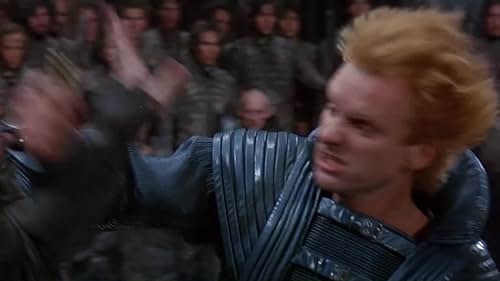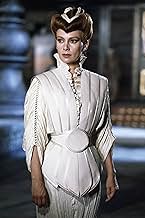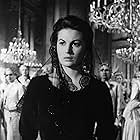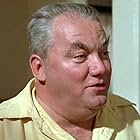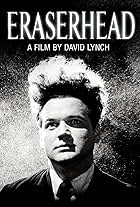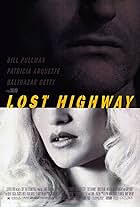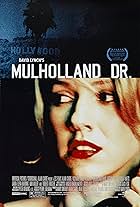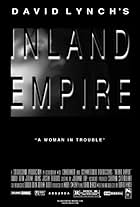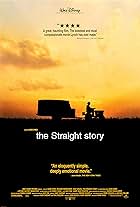अपने पिता की हत्या के बाद, ड्यूक का बेटा गांगेय सम्राट और उसके पिता के दुश्मन के खिलाफ़ रेगिस्तान योद्धाओं का नेतृत्व करता है, ताकि वे अपनी दुनिया को सम्राट के शासन से मुक्त कर सके.अपने पिता की हत्या के बाद, ड्यूक का बेटा गांगेय सम्राट और उसके पिता के दुश्मन के खिलाफ़ रेगिस्तान योद्धाओं का नेतृत्व करता है, ताकि वे अपनी दुनिया को सम्राट के शासन से मुक्त कर सके.अपने पिता की हत्या के बाद, ड्यूक का बेटा गांगेय सम्राट और उसके पिता के दुश्मन के खिलाफ़ रेगिस्तान योद्धाओं का नेतृत्व करता है, ताकि वे अपनी दुनिया को सम्राट के शासन से मुक्त कर सके.
- 1 ऑस्कर के लिए नामांकित
- 2 जीत और कुल 6 नामांकन
Siân Phillips
- Reverend Mother Gaius Helen Mohiam
- (as Sian Phillips)
Paul L. Smith
- The Beast Rabban
- (as Paul Smith)
कहानी
क्या आपको पता है
- ट्रिवियाWriter and director David Lynch has said he considers this movie the only real failure of his career. To this day, he refuses to talk about the production in great detail, and has refused numerous offers to work on a Special Edition DVD. Lynch had always claimed that revisiting the movie would be too painful an experience to endure. As of 2024, Lynch has clarified that a Director's Cut is impossible, as Dino De Laurentiis never allowed him to shoot scenes the way he wanted to or to take liberties with the source material Lynch felt he needed.
- गूफ़At 1 hour 28 minutes and 40 seconds, Paul is seen standing next to Chani his eyes are blue, in the next scene Paul's eyes are normal. At this point In the movie Paul has only been on the planet Dune for a few days, it takes years of extended exposure to the spice for ones eyes to become blue, like the Fremen. Which happens to Paul later in the movie.
- क्रेज़ी क्रेडिटThe closing credits play out over shots of the Caladan ocean, and feature a montage of the main cast.
- इसके अलावा अन्य वर्जनAs of 2006, the Alan Smithee version had been released in a two disk set containing both the Lynch version and the extended version. However, many scenes were edited out once again: The heart plug scene when the baron is introduced is not in the extended version anymore (it is still in the original). The scene where Thufir discovers the burning wierding modules is also missing, as well as Thufir's death scene. (Thufir's death scene is included as a deleted scene in the special features)
- कनेक्शनEdited into Destination Dune (1983)
फीचर्ड रिव्यू
Say what you will about incoherence, this is more sensuous than any Star Wars. In fact, it is the most expensive 'tripping' ever produced in film - though far from the most satisfying.
It helps to know the book and forget it as you watch this. Not being familiar with the book, you're left with a disjointed tapestry of weird costumes and special effects, some of them impressive, but if you are, and don't have to burden yourself with following the constantly clumsy explanation of the multifaceted Dune universe, you can enjoy this as illustration of a few core ideas.
Herbert's novel was the product of strange and powerful times. The US public was experiencing the Civil Rights upheaval, its short-lived infatuation with Islam and meditation, and the same year as the book came out, LSD had spilled out of some top-secret government labs into the streets and youth culture of San Francisco. The first satellite images of Earth had just been published. The Black Panthers had entered the vernacular.
So all the stuff about prescient visions, mentats and mastering mind, (herbally) expanded consciousness as the tool to the navigation and 'folding' of space, Herbert wrote with one eye on the Jordan Belson, Beatles and Maharishi crowd - the generation between film noir and Lucas that for a brief time projected truths into constructed cosmologies.
Herbert was more erudite than most. But he was caught under the same spell - the expectation of a noble jihad of the people and wise lamas from the East coming to teach 'the way'. And you can tell that he was exposed to Eastern thought through Jungians, by his laboriously constructed mythology and (now trite) focus on a Chosen One's journey.
Lynch was a late bloomer in that scene. To my knowledge, he fell in with what was being marketed as 'transcendental meditation' in his AFI years, while filming Eraserhead. I don't know what they practice behind closed doors - my interest lies with the Chinese model and they seem cultish to me. But, there's no doubt to me that he passed on the Lucas gig, thinking he was going to work on a vision of some power.
The film outright fails because the scope of the book is too big (to think that Hobbit is being stretched into a trilogy these days), and because he lacked the right collaborators and probably the predisposition to make an 'action' Dune.
Now Jodorowsky's Dune would have been something to see, probably as cumbersome about spirituality but much more organic. But, it's worth noting a few interesting things about this, in context of how Lynch would expand in later years.
He zeroes in on the transcendental experience of 'awakening the sleeper'. He does so in an obvious manner. Rambaldi's spiceworms as blossoming desert flowers top his visual meditation. And that all of Herbert's pomp and mythological noise work against him submerging the idea.
Keep in mind the Chinese notion - from the Tao Te Ching - that the 'soft beats the hard', stressed twice in the film even though no one actually thinks or fights in the Chinese way. Discard everything that is hard, from the crass Harkonnen to the acting style (mentat Dourif!) to the sophomoric rousing of Fremen rebellion, laser battles and final redemption.
The one part that is soft is at House Atreides, the preparation for Dune. What is there? Familiar dynamics - it's soap opera if you discard the costumes. Premonitions of murder and telepathic wiring with a fabric behind reason. A woman with her box of illusory sensations. A space flight through the doors of perception.
It's heady. None of it really works, because Herbert's synchretic universe is not one of internal martial arts, what we see matters. But does any of it remind you of a David Lynch film you know?
It helps to know the book and forget it as you watch this. Not being familiar with the book, you're left with a disjointed tapestry of weird costumes and special effects, some of them impressive, but if you are, and don't have to burden yourself with following the constantly clumsy explanation of the multifaceted Dune universe, you can enjoy this as illustration of a few core ideas.
Herbert's novel was the product of strange and powerful times. The US public was experiencing the Civil Rights upheaval, its short-lived infatuation with Islam and meditation, and the same year as the book came out, LSD had spilled out of some top-secret government labs into the streets and youth culture of San Francisco. The first satellite images of Earth had just been published. The Black Panthers had entered the vernacular.
So all the stuff about prescient visions, mentats and mastering mind, (herbally) expanded consciousness as the tool to the navigation and 'folding' of space, Herbert wrote with one eye on the Jordan Belson, Beatles and Maharishi crowd - the generation between film noir and Lucas that for a brief time projected truths into constructed cosmologies.
Herbert was more erudite than most. But he was caught under the same spell - the expectation of a noble jihad of the people and wise lamas from the East coming to teach 'the way'. And you can tell that he was exposed to Eastern thought through Jungians, by his laboriously constructed mythology and (now trite) focus on a Chosen One's journey.
Lynch was a late bloomer in that scene. To my knowledge, he fell in with what was being marketed as 'transcendental meditation' in his AFI years, while filming Eraserhead. I don't know what they practice behind closed doors - my interest lies with the Chinese model and they seem cultish to me. But, there's no doubt to me that he passed on the Lucas gig, thinking he was going to work on a vision of some power.
The film outright fails because the scope of the book is too big (to think that Hobbit is being stretched into a trilogy these days), and because he lacked the right collaborators and probably the predisposition to make an 'action' Dune.
Now Jodorowsky's Dune would have been something to see, probably as cumbersome about spirituality but much more organic. But, it's worth noting a few interesting things about this, in context of how Lynch would expand in later years.
He zeroes in on the transcendental experience of 'awakening the sleeper'. He does so in an obvious manner. Rambaldi's spiceworms as blossoming desert flowers top his visual meditation. And that all of Herbert's pomp and mythological noise work against him submerging the idea.
Keep in mind the Chinese notion - from the Tao Te Ching - that the 'soft beats the hard', stressed twice in the film even though no one actually thinks or fights in the Chinese way. Discard everything that is hard, from the crass Harkonnen to the acting style (mentat Dourif!) to the sophomoric rousing of Fremen rebellion, laser battles and final redemption.
The one part that is soft is at House Atreides, the preparation for Dune. What is there? Familiar dynamics - it's soap opera if you discard the costumes. Premonitions of murder and telepathic wiring with a fabric behind reason. A woman with her box of illusory sensations. A space flight through the doors of perception.
It's heady. None of it really works, because Herbert's synchretic universe is not one of internal martial arts, what we see matters. But does any of it remind you of a David Lynch film you know?
- chaos-rampant
- 20 अक्तू॰ 2012
- परमालिंक
टॉप पसंद
रेटिंग देने के लिए साइन-इन करें और वैयक्तिकृत सुझावों के लिए वॉचलिस्ट करें
David Lynch's Movies Ranked by IMDb Rating
David Lynch's Movies Ranked by IMDb Rating
See how IMDb users rank the films of legendary director David Lynch.
विवरण
बॉक्स ऑफ़िस
- बजट
- $4,00,00,000(अनुमानित)
- US और कनाडा में सकल
- $3,14,39,560
- US और कनाडा में पहले सप्ताह में कुल कमाई
- $60,25,091
- 16 दिस॰ 1984
- दुनिया भर में सकल
- $3,15,00,400
- चलने की अवधि2 घंटे 17 मिनट
- रंग
- पक्ष अनुपात
- 2.35 : 1
इस पेज में योगदान दें
किसी बदलाव का सुझाव दें या अनुपलब्ध कॉन्टेंट जोड़ें


